By Lakhram Bhagirat
Hindus have the responsibility to ensure that every one of God’s creations is treated equally and with the respect they deserve. Hinduism by itself is a way of life. It guides its followers along the path of Sanatana dharma, which is basically a set of eternal duties a Hindu should fulfil.
One of the main tenets of Hinduism is equality. Not just selective equality, but complete equality. Every creation, in Hinduism, is revered and respected as documented in the various texts that serve as a guide for navigation of one’s duties.
In Hinduism, homosexuality is described as a biological condition and therefore, Hindus should not treat a homosexual person any differently. The very teachings of the various sacred texts stress the points of acceptance, love, and good karma.
Trinidadian-American Professor of Religion, Pandit Anantanand Rambachan eloquently explains the teachings of the Ramayana as it relates to the introduction of a third gender in Uttarakaanda 87 of the Shri Ramcharitmanas.
Uttarakaanda 87 of the Shri Ramcharitmanas states: “purusa napumsaka nari jiva caracara koi, sarba bhava bhaja kapata taji mohi parama pritya soi. Satya kahau khaga tohi suci sevaka mama pranapriya, asi bicari bhaju mohi parihari asa bharosa saba.”
This translates to Shri Ram saying: “Be it, man, woman or one lacking in the characteristics of both, or, for the matter of that, any living being, giving up all the guile, is supremely dear to me. O bird, I tell you in all sincerity that a guileless servant is dear to me as life. Realising this, worship me, abandoning all other hope and reliance.”
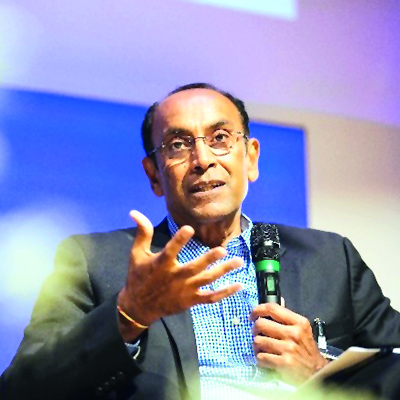
Pandit Rambachan, says by introducing the third sex (napumsaka), Shri Ram is saying that gender is non-binary. He explicitly states that napumsaka refers to a gay person and adds that our very teaching implores Hindus to treat them with the respect they so deserve.
“There is no justification; there are no bases in our Hindu tradition for homophobia, for disrespecting, for ill-treating gay people, for denying them rights that we as people enjoy. You may disagree with me on this, but I stand by this to say that homophobia and the denigration of gays are inconsistent with the highest teachings of our Ramayana and not only that but the Upanishads (the ancient Sanskrit texts of the spiritual teachings and ideals of Hinduism),” Pandit Rambachan said during a yajna a few years ago.
He notes that Shri Tulsidas starts the Ramayana epic by saying that there are so many different beings in this world. So many that even Shri Ram cannot count them all, but appreciates the fact that there is divinity in every one of them. On that note, Shri Tulsidas pens his appreciation and respect for each one.
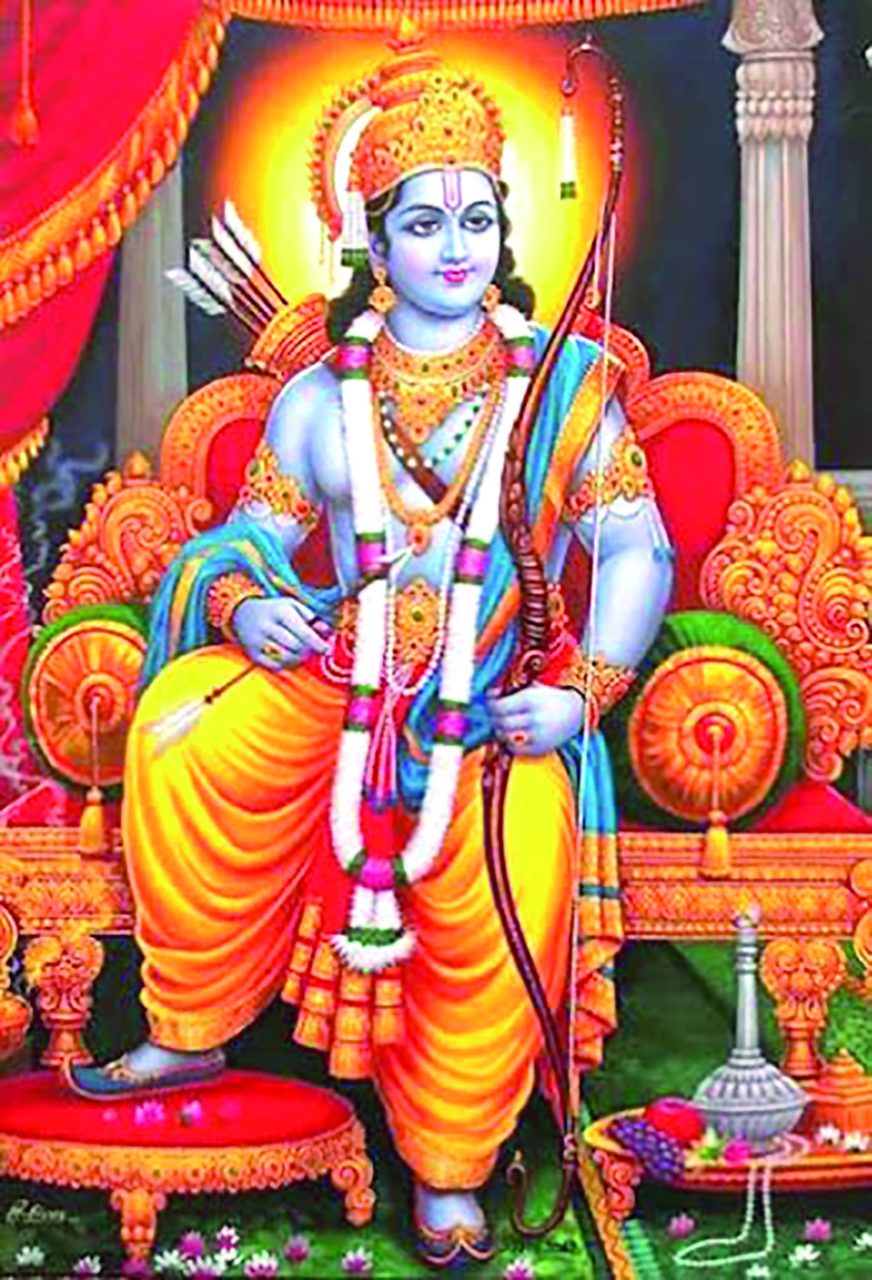
Hinduism’s traditions call for the respect and deem sacred, the worth of every human being. It speaks nothing about treating differently those who may be considered as different. The teachings are premised on the fact of service to humanity and good deeds beget good karma.
Nowhere, in Hinduism, does it discriminate against any of God’s creation.
Pandit Rambachan says, “Shri Ram acknowledges the third gender – the napumsukas, the people who are born different and they should not be treated differently or unfairly because they’re different. Let us not engage in the verbal denigration of gay people, because it is not in our tradition. We have Sanatana dharma. Every human being should follow very basic dharmic rules.”
At no point does Hinduism condone immoral behaviour, but it also teaches the acceptance of those different from what one may consider as the norm. The teachings clearly state that people who have no choice about who they are should not be punished for being themselves. They should be afforded every opportunity there is.
Explaining the fact that homosexuality was referred to as a biological condition in Hinduism, Pandit Rambachan turned to another sacred epic – the Mahabharata.
“Arjuna, in Mahabharata when they were in exile, they had to live incognito… they had to live in disguise for one year and all of them took up different kinds of roles to conceal themselves. What was Arjuna’s role? Arjuna pretended to be a gay person and worked in the Palace. The fact that he could have taken up that role showed that people knew what that role was and accepted that role,” he explained.
Though many Hindu priests are against performing vivah sanskar (wedding ceremony) for homosexual couples they tend to respect the choice of the individual.
Back in 2012, the then President of the Guyana Hindu Dharmic Sabha, the late Pandit Reepu Daman Persaud condemned the legalising of homosexual unions. However, in the same breath, he informed that the GHDS has no intention of trampling on the freedom of choice as well as democratic rights of an individual.
“I have never read in any holy book of a man who marries a man or a woman marrying a woman; this is immoral and something we should not let into our society, but at the same time, we must not discriminate,” he was quoted as saying by Guyana Times.
Throughout the years, there have been various opinions brought forward by Hindu priests and notable among them was that of Swami Aksharananda. Swami Aksharananda would have, over the years, attended various symposiums where the topic of homosexuality dominated.
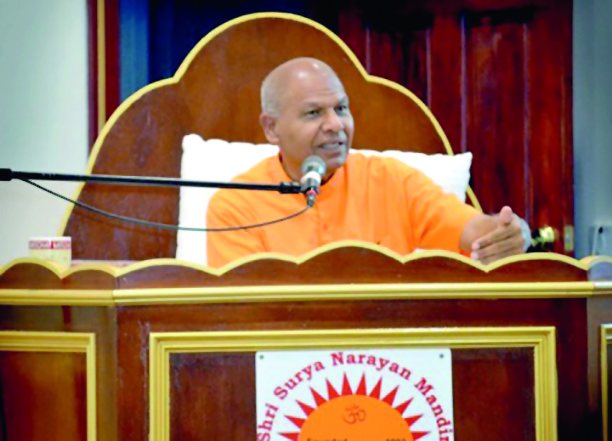
In 2013, he explicitly stated that homosexuality is not an abomination, adding that he was in no position to judge one’s lifestyle.
Swami Aksharananda, who is also the Principal of the Saraswati Vidya Niketan School, stated that in Hinduism it is not one’s responsibility to judge since God does not judge. He reminded that it is the very teachings of Hinduism that informs everyone that they are an embodiment of the very God they serve so to discriminate against another individual for being different is tantamount to discriminating against God.
“The LGBTQ community has too long suffered from attacks, discriminations and injustices in society and the systematic alienation of their members by many faith communities has resulted in them losing hope in us as leaders, whom, they expect treatment of non-discrimination, non- judgemental and non-derogatory innuendos. Dealing with who they are itself is a daily challenge; as such, we as a society ought not to be the judges of people’s lifestyle; in this case, the context of morals,” Pandit Deodat Persaud said.
He, like many other Hindu scholars, notes that from the Hindu perspective the scriptures are generally very open and understanding of the LGBTQ community, but questioned the difference at points between the open-mindedness of the scriptures and the lack of acceptance.
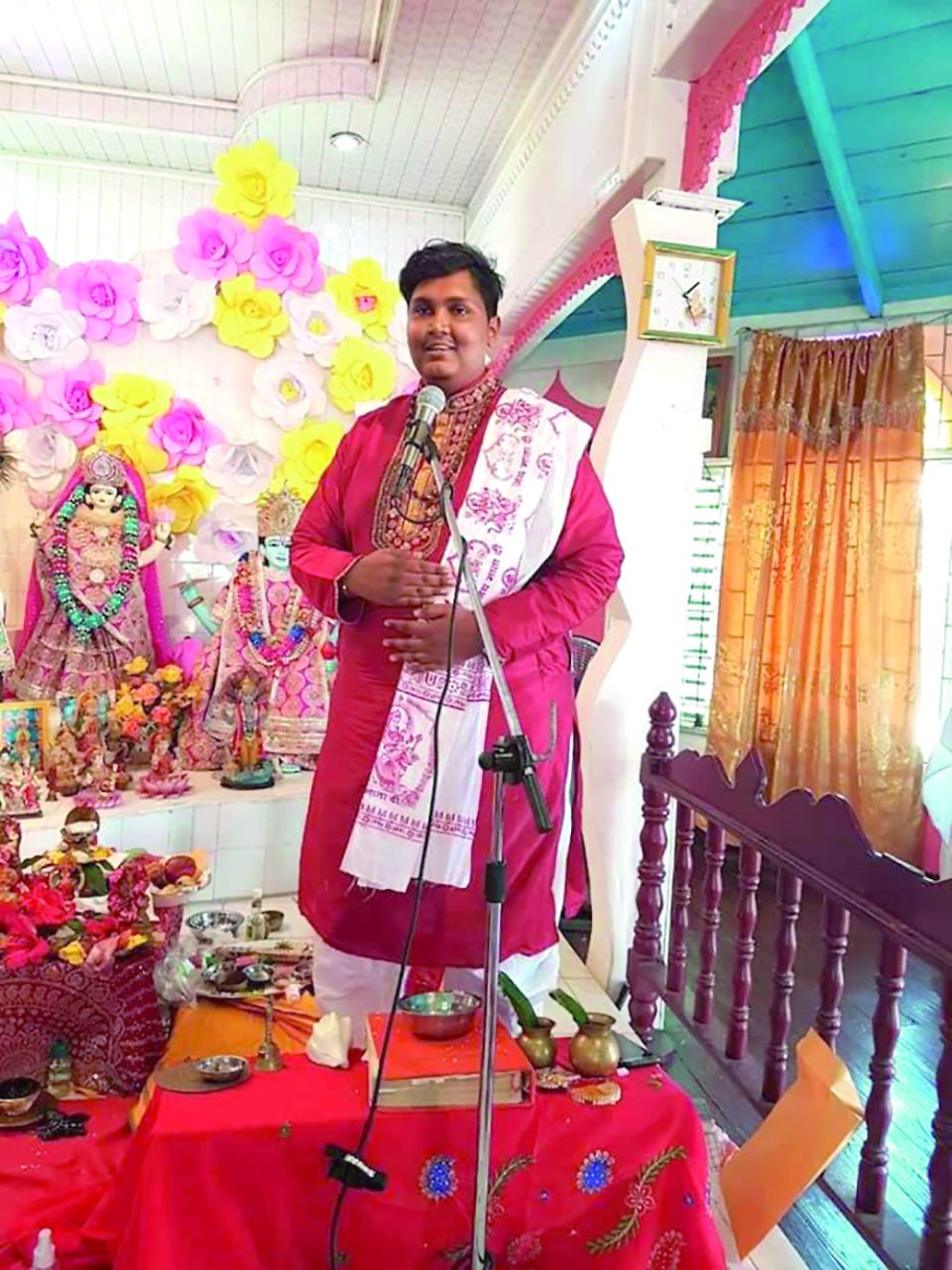
Pandit Persaud, who hails from the Ancient County of Berbice, said he has seen LGBTQ persons being very helpful and co-existing harmoniously within the mandir structures and urged that their lives be respected as much as one would respect one’s own.
Human rights activist and lifelong Hindu Vidyaratha Kissoon has been speaking about the correlation between Hinduism and homosexuality for a number of years. He notes that there is a need to explain to Hindus how laws which criminalise same-sex activity create an environment for discrimination and violence against LGBTQ citizens.
“In the Caribbean, religious leaders are often called on to pronounce on ‘gay rights’ and ‘homosexuality’. Caribbean Hindu practice has been influenced by colonialism. There is a desire, where controversial issues arise, to appeal to conservative views so as not to be seen to be so ‘morally’ different from some forms of Christianity or Islam. Hindus around the world have been talking about human rights and homosexuality. Hindu practices and thoughts are diverse, and a critical feature of Hinduism is the questioning and adapting and application of the teachings based on time and geography,” he wrote in a 2013 post on his blog – Thoughts of a Minibus Traveller.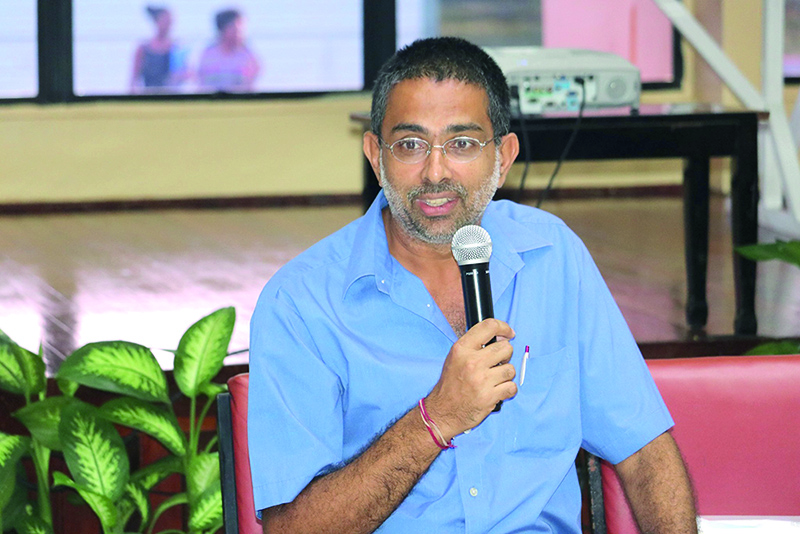
Kissoon notes that in the context of ‘gay rights’ there are going to be Pandits and Swamis who would talk about ‘dirty Western impositions’ while other Swamis and Pandits have sought to have vivah ceremonies for same-sex couples (not marriage) and have encouraged their LGBTQ devotees to live with integrity.
Hindu devotees are a diverse group, and they all have varying opinions on the topic of homosexuality.
Devotee Sumitra Singh says while she is on the fence about gay marriages, she does respect the right of an individual to choose who they wish to spend the rest of their life with. On the other hand, youngster Kevin Persaud said he was totally against the entire “gay thing”.
Hinduism is clear in its teachings that everyone should be respected and treated kindly. Most important of all is that we should share love.











